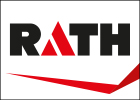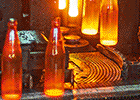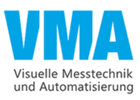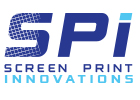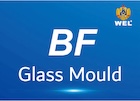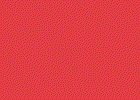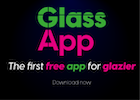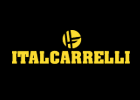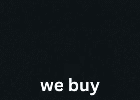On-demand. That’s the world we are living in. Whether it’s communication, entertainment, mobility or information, patience is a virtue being called upon less and less. On the other hand, smart devices are called upon more and more. Indeed, our connected world means information and instant interaction is readily accessible – anytime, anywhere. Dr Christian Bartsch – Senior Manager Digital Innovation at Linde’s Corporate Digitalisation Office (CDO) and co-lead of the Programmatic Digital Transformation Program – argues that industry should be no different. “We’re transforming the working culture throughout Linde,” he says. Smart remote support is one of many building blocks on this journey. “Smart glasses and augmented reality technology has reached a proven maturity level and can boost collaboration to a new level – especially in our industrial gases and engineering industry.”
Through the eyes of an expert
Expertise is a precious commodity these days – and sometimes there just isn’t enough to go around. “There is an increasing number of people coming through with a generic skillset,” explains Bartsch, “yet the number of tasks per person continues to increase.” The result: experts aren’t always immediately available – in person – when they are called upon. Not only that, but given Linde’s vast distribution of advanced technology assets – such as the over 1000 industrial plants scattered around all corners of the globe – it costs the company both time and money to send specialists to sites, not to mention the possible downtime as they get there. Smart remote support makes the world a smaller place – and that spells benefits for both Linde and its customers.
“We’re currently running multiple pilots across six countries to see how we can best apply smart remote support across the entire group,” says Bartsch. “The technology offers huge potential for efficiency gains in our own processes, troubleshooting, maintenance, knowledge exchange and training.”.
Smart glasses are just one device in Linde’s remote support solution portfolio, which also includes specially adapted smartphones and tablets. The beauty of the smart glasses however, is the ability to go hands-free. These connected, wearable devices have integrated audio and video capabilities, which means remote experts can connect via a live stream and see what the on-site operator is seeing as they tackle a task. They can then offer support and feedback in real time. But the icing on the cake is when the glasses are used in conjunction with augmented reality (AR). Then, the expert can send digital information real real-time pointers, drawings, site plans and photos which are juxtaposed with the physical world within the wearer’s field of view.
“This is a real opportunity for scalable knowledge transfer,” says Bartsch, “it allows for on-the-job training in the truest sense. For repair or maintenance tasks, for example, the user can perform it under remote supervision the first two times and then do it alone the third.” ‘Scalable’ is the key here. “My colleague Johnathan Low in our Digital Hub in Singapore is already pushing smart remote support for the APAC region,” Bartsch adds, “so looking to the future, we’re in a strong position.”
Far from one size fits all
Linde’s device portfolio offers a number of different types of glasses: from partial visual support with a digital monocle to a full monitor view (equivalent of a 40in screen) in a pair of protective goggles. Indeed, flexible solutions are essential given the diversity of the use cases.
Take Hydrogen (H2) plants for example. These plants contain what are known as ‘EX’ environments: exclusion zones that demand the most stringent of safety precautions. “Even smartphones which contain lithium-ion batteries can pose a risk in these zones – however small,” says Bartsch, “but that isn’t a show-stopper for smart remote support since we have special intrinsically safe and ‘ruggedized’ smartphones, tablets and – in the future – also glasses for these applications”.
For ECOVAR – Linde’s unmanned onsite solutions – smart glasses provide additional sets of eyes for any lone technician carrying out work on these units.
Another use case currently in development at the CDO together with Linde business owners is HydroAR: augmented reality-supported planned maintenance for hydrogen fuelling stations. The small band of Hydrogen fuelling experts could well become stretched with the number of stations being added to the network on the rise: smart support cures that. HydroAR is currently being trialled at some hydrogen fuelling stations but Linde thinks it has the potential to reduce expert travel costs by up to 30%. Not only that but in doing so, it could free up remote experts’ time significantly so that they can do what they do best: innovate for the future.
The benefits of smart glasses technology extend equally to third party providers and external customers. “This technology enables us to offer new service models like LindeGO to customers, essentially providing them with a fast-support channel,” explains Thomas Daffner, Manager Product Management at LINDE PLANTSERV™. Linde’s CDO recently pushed this app-based remote support service through its three-month acceleration program. It becomes the latest digital addition to the LINDE PLANTSERV™ offering which focuses on optimising services, maintenance and modernisation through cost-effective technologies.
Partnering up for innovative solutions
Linde is partnering with some of the most innovative start-ups out there when it comes to these smart remote support solutions – both local and further afield. “For LindeGO we’re working with German-based oculavis, a spin-off of the Fraunhofer-Institute for Production Technology and RWTH Aachen University,” says Bartsch. “For the advanced augmented reality functionalities, Isreali start-up FieldBit provides an end-to-end collaboration platform that is easy to setup via an android app,” he adds. Austria-based start-up ivii is another provider.
The smart glasses in the portfolio currently includes the fully voice controlled HMT-1 from Realwear for when users need to be mobile and hands-free around industrial sites, as well as the Epson BT350 and the industrial ODG R-7 for more stationary tasks.
All this goes to say that by investing in smart remote support, Linde is on the cutting edge of industrial digitization; the frontier of visualisation technology. And according to Christian Bartsch, that’s exactly where it wants to be.




